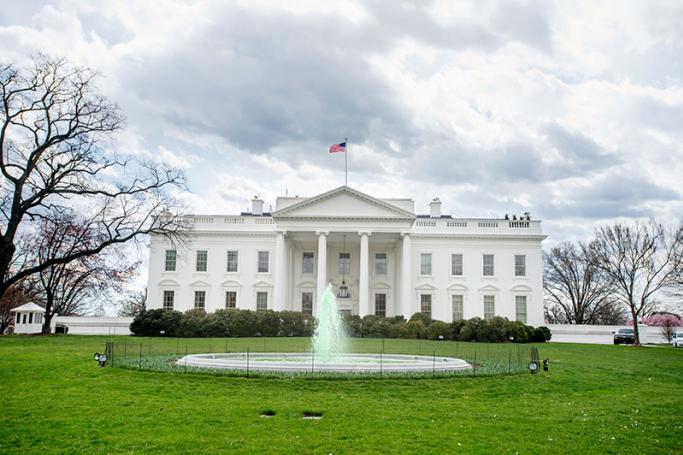Rolling back US sanctions on Myanmar will top the agenda Wednesday as President Barack Obama hosts democracy champion Aung San Suu Kyi, with American firms desperate to tap millions of consumers once cut off by the former junta.
The Nobel laureate, who is Myanmar's de facto leader, helped persuade the West to impose sanctions during her years under house arrest.
In a symbol of the democratic change sweeping her country, one of the poorest in Asia, she now holds the key to unlocking the nation to US businesses as a reward for its peaceful elections last year.
"We'll want to hear from her directly about how she is viewing our sanctions regime," said Obama aide Ben Rhodes.
But not everyone is happy. Some activists say sanctions must remain to keep the still-powerful military in line.
What are the sanctions?
US sanctions on Myanmar target more than 100 people and companies linked to the former junta.
Americans are banned from any dealings with those on the blacklist, or with the companies they own; have to report new investments over $5 million, and cannot import rubies or jadeite from Myanmar.
The list includes military-owned conglomerates, such as Myanmar Economic Holdings, and firms linked to so-called "cronies" like Steven Law's Asia World Co, which built Yangon's airport.
Sanctions also target companies trading with Myanmar's resources, including gems, such as Myanmar Ruby Enterprise and Myanmar Imperial Jade.
What is the impact of the blacklist?
While some major brands including Colgate, Chevron and Coca-Cola have taken the plunge, most US companies say sanctions make it too expensive and dangerous to invest in Myanmar.
The military elite and their cronies still control much of the economy through a network of opaque holding companies.
Coca-Cola was left red-faced last year when Global Witness discovered its local partner was linked to a sanctioned military holding company, while a dealer for machinery giant Caterpillar had ties to jade companies controlled by a major drug lord.
Banks also fear extending credit in Myanmar will put them in the US regulators' crosshairs after the record $8.9 billion fine meted out to BNP Paribas for breaking sanctions in 2014.
"Most foreign banks do not bother to check if the parties they are remitting to are on the US sanctions list -- they just automatically stop the transaction," said Andrew Tan, managing director of Yangon-based Consult Myanmar.
What could Obama do?
Washington began rolling back sanctions after a quasi-civilian government took power in 2011.
In May this year, it further eased restrictions on state banks, mining and timber companies after Suu Kyi's party became the first civilian government to take power in 50 years.
Obama, who has invested much political capital in Myanmar's transition, could lift some of the sanctions, scrap them completely or try to replace them with tarrifs.
Scrapping them would send a "meaningful signal" that one of Asia's poorest countries is open for business, said former US Treasury sanctions official Peter Kucik, who now consults with Inle Advisory Group.
US senators upped the political stakes on Tuesday when they introduced legislation that would set "benchmarks" on sanctions relief, linking it to democratic reforms and ethnic reconciliation.
Either way, an arms embargo and trading restrictions on the murky jade mining sector are expected to stay in place.
So why not scrap them?
While the military allowed elections last year, it retains a quarter of seats in parliament.
It also controls the civil service and key security ministries, and is locked in decades-long conflict with ethnic minorities in Myanmar's borderlands.
Opponents say easing the sanctions will remove a key pressure point on the generals.
"Sanctions provide an essential tool for reformers against the powerful elites which still threaten the country’s future," said Global Witness senior analyst JumanKubba.
"They must not be eased until they've served that purpose."
- What are the other roadblocks? –
Sanctions are just one of many challenges for businesses trying to operate in Myanmar.
After years of neglect, Myanmar lacks much of the basic infrastructure and the skilled workforce needed to attract foreign businesses.
As in Iran and Cuba, unpicking the impact of sanctions could also take many years.
"Clearing the (sanctions) list tomorrow isn't going to lead to a sudden gold rush into Myanmar," said Anthony Nelson, from the US-ASEAN Business Council.
© AFP
You are viewing the old site.
Please update your bookmark to https://eng.mizzima.com.
Mizzima Weekly Magazine Issue...
14 December 2023
Spring Revolution Daily News f...
13 December 2023
New UK Burma sanctions welcome...
13 December 2023
Spring Revolution Daily News f...
12 December 2023
Spring Revolution Daily News f...
11 December 2023
Spring Revolution Daily News f...
08 December 2023
Spring Revolution Daily News f...
07 December 2023
Diaspora journalists increasin...
07 December 2023
Local Shan people call for their identity to be added to signboard












